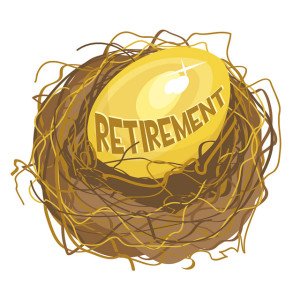 Most pension plans and retirement savings are exempt from the claims of creditors.
Most pension plans and retirement savings are exempt from the claims of creditors.
That means the creditor can’t levy or intercept your IRA or 401(k).
Different rule for Uncle Sam.
Federal tax liens do attach to IRA’s, 401 K’s, and pension plans, and, liens generally pass through bankruptcy unaltered and fully enforceable.
Tax liens don’t attach to Social Security benefits.
If you owe taxes, the IRS may offset some of your Social Security to pay a tax you owe. But if you get a bankruptcy discharge, your Social Security is safe from the tax man.
Tax liens survive discharge
While a bankruptcy may discharge your personal liability and protect assets that you acquire after the bankruptcy, any prepetition tax lien survives as a charge on assets owned at the time you filed bankruptcy.
These tax liens, if not released, can cause a huge upset in your retirement budget if the IRS tries to enforce the lien when the retirement plan is in pay status.
Tax liens eventually die
The good news is that a tax lien will die of old age.
The lien is enforceable for 10 years from the assessment of the tax it secures.
Note, that’s 10 years from assessment of the tax, not from the tax due date, or even 10 years from recordation of the lien.
Tax collection uneven
If you are approaching retirement, there’s a further bit of good news: our experience has been that the IRS does not have a system in place to collect on tax liens that attach to retirement funds.
At present the IRS does not appear to be routinely monitoring or renewing these liens after a bankruptcy discharge. But this could change.
If this describes your situation, get experienced bankruptcy counsel.
More on taxes & bankruptcy
Image courtesy of American Advisors Group.
